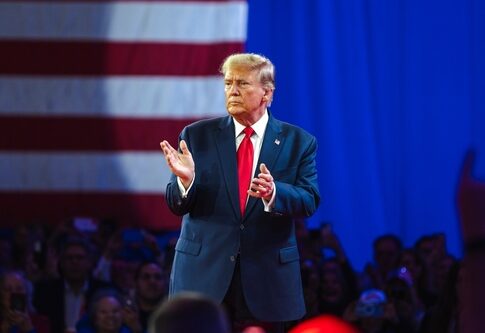Former President Donald Trump plans to pardon January 6 rioters and use military force for mass deportations. Critics argue a pardon shall normalize the events of January 6 and undermine the justice system. Has the American southern border been invaded for the past 4 years?
Trump’s Pardon Promises for January 6 Defendants
In a recent interview, former President Donald Trump has reiterated his commitment to pardoning individuals involved in the January 6 Capitol riot. Trump’s bold stance has ignited a fierce debate about the implications of such pardons on the justice system and national security. The former president has stated that he would issue these pardons on the first day of his potential second term, with some exceptions.
Trump’s pardon plans have drawn criticism from various quarters, including federal judges. Judge Royce Lamberth, who has presided over numerous January 6 cases, issued a stark warning against normalizing the events of that day.
“We as a society, as a community, and as a country cannot normalize the events of Jan. 6,” said Judge Royce Lamberth.
The judge’s comments underscore the gravity of the situation and the potential consequences of blanket pardons for those involved in the Capitol breach. Critics argue that such pardons could undermine the justice system and potentially legitimize violence as a means of political expression.
President-elect Donald Trump says that he would act on his first day in office to pardon rioters involved in the Jan. 6, 2021 Capitol riot.https://t.co/brgsv8Z1js
— KSL (@KSLcom) December 8, 2024
Military Involvement in Deportation Plans
In addition to his pardon promises, Trump has outlined a controversial plan to use military forces for mass deportations. The former president has stated his intention to deploy military capabilities to the fullest extent allowed by law to enforce his deportation objectives. This approach, which Trump characterizes as a response to an “invasion,” has raised concerns about the appropriate use of military resources and the potential impact on civil liberties.
Trump’s deportation strategy appears to be a central part of his immigration reform plans. While he has expressed a desire to avoid family separations, he has not ruled out the possibility entirely, stating, “That would be my commitment.” This stance has reignited debates about humane immigration policies and the balance between national security and family unity.
President-elect Donald Trump said in an interview that that he would act on his first day in office to pardon rioters involved in the Jan. 6, 2021, Capitol attack, further building expectations for a broad granting of clemency https://t.co/BkKNq0J2Su
— Reuters (@Reuters) December 9, 2024
Implications for National Security and Policing
The former president’s statements on pardons and deportations have far-reaching implications for national security and domestic policing strategies. Critics argue that pardoning the January 6 defendants could set a dangerous precedent, potentially encouraging future acts of political violence. On the other hand, supporters of Trump’s plans view them as necessary steps to address what they perceive as injustices and threats to national security.
“No matter what ultimately becomes of the Capitol riots cases already concluded and still pending, the true story of what happened on January 6, 2021, will never change,” said Judge Royce Lamberth.
The involvement of military forces in deportation efforts raises questions about the appropriate role of the military in domestic law enforcement. It also highlights the ongoing debate about the best approaches to immigration control and border security. As the political landscape continues to evolve, these issues are likely to remain at the forefront of national discourse, shaping policy decisions and public opinion.


